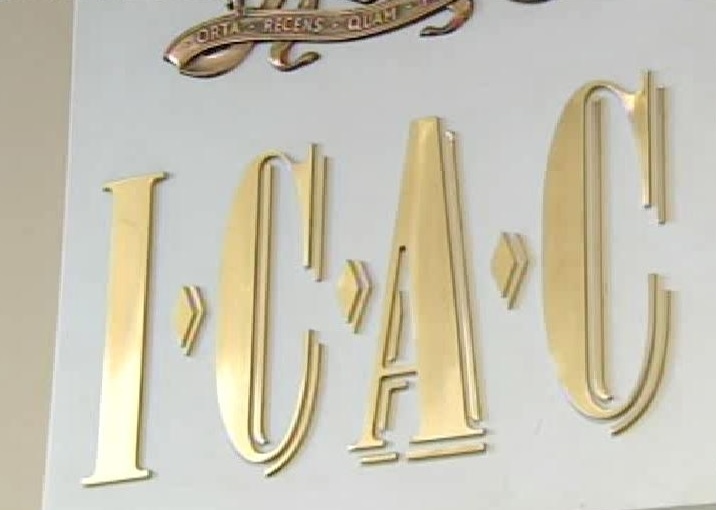
 Last month David Ipp sent a statement to The Australian about his December 2013 report on Operation Acacia – an unusual step indeed for a former commissioner of the NSW Independent Commission Against Corruption, who is also a former judge.
Last month David Ipp sent a statement to The Australian about his December 2013 report on Operation Acacia – an unusual step indeed for a former commissioner of the NSW Independent Commission Against Corruption, who is also a former judge.
The statement commented on matters that my company, NuCoal Resources Ltd, had raised with ICAC inspector David Levine regarding Ipp’s Operation Acacia inquiry.
ICAC’s role, methodologies and the controls that surround it are under review by Levine and an independent panel comprising former High Court chief justice Murray Gleeson and Bruce McClintock SC.
NuCoal has made submissions to these reviews detailing significant deficiencies and inconsistent conclusions in the Acacia investigation.
Ipp’s statement evades the main issue, which is that in my opinion his December 2013 report – the same report whose recommendations were the basis for last year’s Mining Amendment (ICAC Operations Jasper and Acacia) Act which expropriated NuCoal’s exploration licence, EL 7270 displays inconsistencies, erroneous conclusions and an apparent bias against NuCoal.
ICAC’s December 2013 report concerning Operation Acacia, seemingly proceeded on the assumption that NuCoal had knowledge that something was wrong with the granting of EL 7270, and therefore could not have been a “bona fide purchaser” of the licence.
Subsequent press reports appeared to treat this as a foregone conclusion and ICAC did nothing at all to correct this perception.
Notwithstanding the above, since publishing that report ICAC has publicly affirmed its belief in NuCoal’s innocence. Item 18 of ICAC’s response to NuCoal’s judicial review case against ICAC (awaiting decision in the NSW Supreme Court) says:
“Relevantly ICAC’s recommendation that EL 7270 be cancelled was not based on any wrongdoing by NuCoal . it can be inferred from the face of the report that NuCoal and those of its shareholders not involved in the corrupt conduct were contemplated within (the phrase) “any innocent party” . [t]he Commissioner specifically identified NuCoal’s innocence of wrongdoing on 20 March 2013 at T4913. Nothing in the December report suggests that ICAC resiled from that position.” We and the public need to know why ICAC failed to mention, let alone bring to the forefront of the debate, NuCoal’s innocence as a material finding in its December 2013 report.
Instead, my reading of the report suggests ICAC: Wrongly implied that NuCoal and its shareholders invested in EL 7270 with knowledge of the possibility that the licence would be cancelled, implying that NuCoal misled its investors as to that specific risk . Arrived at the above conclusion despite NuCoal having issued a prospectus that was submitted to and accepted by the Australian Securities & Investments Commission and the Australian Securities Exchange.
Made erroneous statements about the existence of “widespread” and “notorious” public controversy (the knowledge of which by former NuCoal director Andrew Poole was debunked by Justice James Stevenson in Poole v Chubb using the same evidence that ICAC had).
Dismissed NuCoal’s thirdparty status, in denial of the substance of the NuCoal acquisition of Doyles Creek Mining – the company that was originally issued with the licence.
We say that ICAC’s December 2013 report encouraged a negative perception about NuCoal that ICAC did nothing to dispel. In turn the report misled parliamentarians, who were given only hours to consider the Mining Amendment Act before being called on to vote for its passage.
This is especially disturbing given that the Mining Amendment Act denied both the option of paying NuCoal any compensation for the cancellation and denied NuCoal the right to seek such compensation via the courts.
As further support, when the draft legislation was published ICAC made no public statements to ensure the parliament knew that it had made no findings of corrupt conduct against NuCoal, that ICAC had recommended NuCoal should be compensated and that the denial of access to legal process was not one of its recommendations. Why not?
Unfortunately, nothing seems to have changed for Ipp. His recent statement to The Australian didn’t defend NuCoal or mention his belief that NuCoal is innocent of any wrongdoing.
The public is also not generally aware that former NSW premier Barry O’Farrell wanted to award compensation to NuCoal as commissioner Ipp recommended. At a community cabinet meeting in Maitland on February 10 last year, a NuCoal shareholder asked him why NuCoal wasn’t getting compensation. O’Farrell’s response at the time was “if I had the money, we would”.
The Mining Amendment Act is not natural justice or the rule of law in action. Its existence has materially contributed, and still is materially contributing, to downgrading NSW’s sovereign risk rating while asset sales are being offered to overseas investors. This situation will remain unjust until the parliament revisits Operation Acacia and the conclusions contained in ICAC’s December 2013 report.
It now knows of ICAC’s actual belief in NuCoal’s innocence of any wrongdoing, and of the former premier’s support for compensation. Had this been presented to the parliament we don’t believe it would have passed the Mining Amendment Act in the form it did – more likely it wouldn’t have been presented at all.
Parliament should inquire into all of this, and the sooner the better. The Mining Amendment Act should be repealed or amended to allow compensation to NuCoal.
Hopefully the ICAC review will also recommend, and the NSW parliament will adopt, a provision to allow challenges of all ICAC’s opinions, findings and recommendations on merit, and this will apply retrospectively.
Gordon Galt is chairman of NuCoal Resources.
The Australian
WTF: Used by permission
